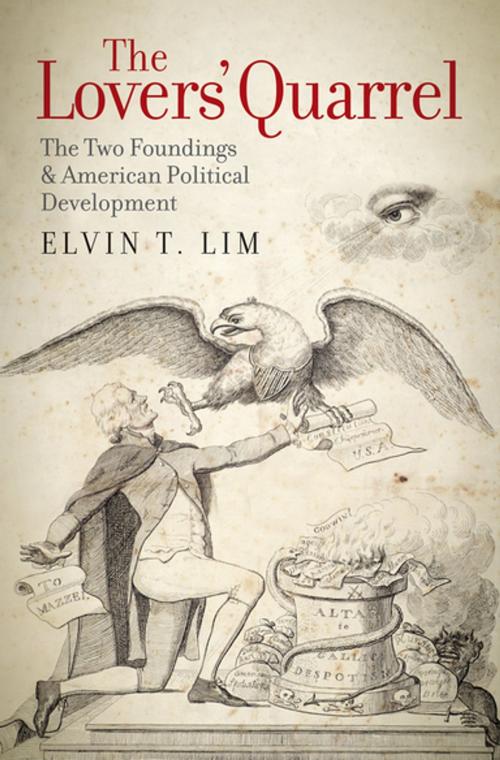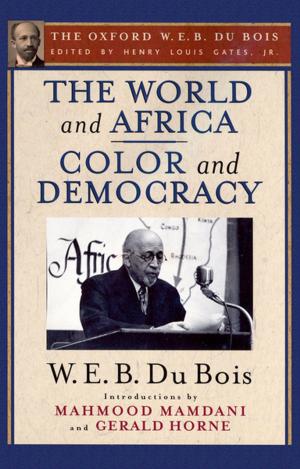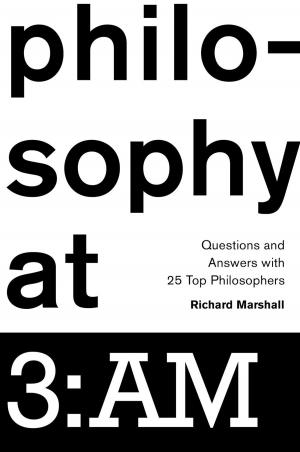The Lovers' Quarrel
The Two Foundings and American Political Development
Nonfiction, Social & Cultural Studies, Political Science, Politics, History & Theory, History, Americas| Author: | Elvin T. Lim | ISBN: | 9780199323951 |
| Publisher: | Oxford University Press | Publication: | May 1, 2013 |
| Imprint: | Oxford University Press | Language: | English |
| Author: | Elvin T. Lim |
| ISBN: | 9780199323951 |
| Publisher: | Oxford University Press |
| Publication: | May 1, 2013 |
| Imprint: | Oxford University Press |
| Language: | English |
The United States has had not one, but two Foundings. The Constitution produced by the Second Founding came to be only after a vociferous battle between Federalists and Anti-Federalists. The Federalists favored a relatively powerful central government, while the Anti-Federalists distrusted the concentration of power in one place and advocated the preservation of sovereignty in the states as crucibles of post-revolutionary republicanism -- the legacy of the First Founding. This philosophical cleavage has been at the heart of practically every major political conflict in U.S. history, and lives on today in debates between modern liberals and conservatives. In The Lovers' Quarrel, Elvin T. Lim presents a systematic and innovative analysis of this perennial struggle. The framers of the second Constitution, the Federalists, were not operating in an ideational or institutional vacuum; rather, the document they drafted and ratified was designed to remedy the perceived flaws of the Articles of Confederation and Perpetual Union. To decouple the Two Foundings is to appreciate that there is no such thing as "original meaning," only original dissent. Because the Anti-Federalists insisted that prior and democratically sanctioned understandings of federalism and union had to be negotiated and partially grafted onto the new Constitution, the Constitution's Articles and the Bill of Rights do not cohere as well together as has conventionally been thought. Rather, they represent two antithetical orientations toward power, liberty, and republicanism. The altercation over the necessity of the Second Founding generated coherent and self-contained philosophies that would become the core of American political thought, reproduced and transmitted across two centuries, whether the victors were the neo-Federalists (such as during the Civil War and the New Deal) or the neo-Anti-Federalists (such as during the Jacksonian era and the Reagan Revolution). The Second Founding -- the sole "founding" that we generally speak of -- would become a template for the unique, prototypically American species of politics and political debate. Because of it, American political development occurs only after the political entrepreneurs of each generation lock horns in a Lovers' Quarrel about the principles of one of the Two Foundings, and succeed in justifying and forging a durable expansion or contraction of federal authority.
The United States has had not one, but two Foundings. The Constitution produced by the Second Founding came to be only after a vociferous battle between Federalists and Anti-Federalists. The Federalists favored a relatively powerful central government, while the Anti-Federalists distrusted the concentration of power in one place and advocated the preservation of sovereignty in the states as crucibles of post-revolutionary republicanism -- the legacy of the First Founding. This philosophical cleavage has been at the heart of practically every major political conflict in U.S. history, and lives on today in debates between modern liberals and conservatives. In The Lovers' Quarrel, Elvin T. Lim presents a systematic and innovative analysis of this perennial struggle. The framers of the second Constitution, the Federalists, were not operating in an ideational or institutional vacuum; rather, the document they drafted and ratified was designed to remedy the perceived flaws of the Articles of Confederation and Perpetual Union. To decouple the Two Foundings is to appreciate that there is no such thing as "original meaning," only original dissent. Because the Anti-Federalists insisted that prior and democratically sanctioned understandings of federalism and union had to be negotiated and partially grafted onto the new Constitution, the Constitution's Articles and the Bill of Rights do not cohere as well together as has conventionally been thought. Rather, they represent two antithetical orientations toward power, liberty, and republicanism. The altercation over the necessity of the Second Founding generated coherent and self-contained philosophies that would become the core of American political thought, reproduced and transmitted across two centuries, whether the victors were the neo-Federalists (such as during the Civil War and the New Deal) or the neo-Anti-Federalists (such as during the Jacksonian era and the Reagan Revolution). The Second Founding -- the sole "founding" that we generally speak of -- would become a template for the unique, prototypically American species of politics and political debate. Because of it, American political development occurs only after the political entrepreneurs of each generation lock horns in a Lovers' Quarrel about the principles of one of the Two Foundings, and succeed in justifying and forging a durable expansion or contraction of federal authority.















